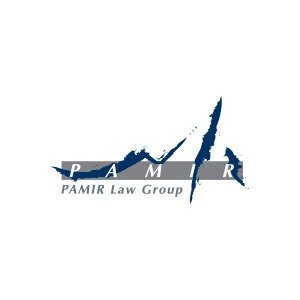Best Energy Regulatory Law Lawyers in Taiwan
Share your needs with us, get contacted by law firms.
Free. Takes 2 min.
Or refine your search by selecting a city:
List of the best lawyers in Taiwan
About Energy Regulatory Law in Taiwan
Energy Regulatory Law in Taiwan governs the development, production, transmission, distribution, and consumption of energy within the country. Due to Taiwan's strategic focus on sustainable energy, rising electricity demand, and a push towards renewable sources, these regulations play a crucial role in shaping the market and protecting both consumers and investors. The law aims to ensure energy security, maintain fair competition, promote environmental protection, and facilitate the transition toward clean energy. The main regulatory authority is the Ministry of Economic Affairs (MOEA), particularly its Bureau of Energy (BOE), which oversees the creation and enforcement of policies and laws related to the energy sector.
Why You May Need a Lawyer
Engaging with Taiwan's energy sector, whether as a business, developer, or consumer, often involves complex regulatory requirements and compliance issues. Common situations where legal advice might be essential include:
- Developing or investing in renewable energy projects
- Navigating licensing and permitting processes for energy utilities
- Negotiating power purchase agreements or joint ventures in the energy market
- Facing disputes regarding energy tariffs or contract terms
- Ensuring environmental compliance and obtaining necessary approvals
- Handling regulatory investigations or administrative penalties
- Understanding the impact of recent policy changes on your business
A lawyer specializing in energy regulatory law can provide tailored guidance to minimize legal risks, enhance compliance, and help you smoothly manage relationships with regulatory bodies.
Local Laws Overview
Taiwan's energy regulatory framework includes several critical laws and regulations, each addressing different aspects of energy production, market operation, and environmental protection. Some key elements include:
- Electricity Act: Governs the generation, transmission, and distribution of electricity, encourages liberalization and competition, and sets the foundation for renewable energy integration.
- Renewable Energy Development Act: Promotes the development and use of renewable energy sources. Provides incentives, sets feed-in tariffs, and details application processes for renewable energy projects.
- Energy Administration Act: Sets out the basic structure for energy administration, planning, and supervision. Guides energy conservation and the development of new energy technologies.
- Environmental Protection Laws: Encompass regulations on emissions, environmental impact assessments, and other requirements crucial for energy projects.
- Bureau of Energy Regulations: The BOE issues additional rules and guidelines that regulate market operation, licensing, and compliance matters.
Compliance with these laws is mandatory for any stakeholder in the energy sector. Violations can result in fines, delays, or even project cancellation.
Frequently Asked Questions
What government agencies regulate energy in Taiwan?
The Ministry of Economic Affairs, primarily through its Bureau of Energy, is responsible for regulating the energy sector. The Environmental Protection Administration also plays a key role for projects with environmental impacts.
What is the permitting process for renewable energy projects?
You must secure a series of permits, including project approval, land use consent, construction, and environmental assessments, followed by connection and operation licenses from relevant authorities.
Are there incentives for renewable energy investments in Taiwan?
Yes, the government offers feed-in tariffs, tax breaks, and other incentives to encourage the development of solar, wind, and other renewable energy projects under the Renewable Energy Development Act.
Is foreign investment allowed in Taiwan’s energy sector?
Foreign investors are generally permitted, especially in renewable energy, provided they comply with local laws and obtain the requisite permits and approvals.
How are electricity tariffs determined?
Tariffs are set by the government, based on recommendations from the Bureau of Energy, considering operational costs, market demands, and policy objectives. Tariffs differ between traditional and renewable sources.
What environmental compliance requirements apply to energy projects?
Most large-scale projects require an Environmental Impact Assessment (EIA) and must comply with ongoing emission standards and other environmental regulations set by the Environmental Protection Administration.
What are Power Purchase Agreements (PPAs) and how are they regulated?
PPAs are contracts between energy producers and buyers, detailing terms of sale, pricing, and supply. These are subject to government oversight and must comply with relevant contractual and regulatory requirements.
Can disputes regarding energy projects be resolved through arbitration?
Yes, many contracts include arbitration clauses. Taiwan recognizes arbitration as a valid method for resolving disputes, alongside litigation in local courts.
What are the consequences of failing to comply with energy regulations?
Non-compliance may result in warnings, fines, suspension of permits, or legal action. In severe cases, projects may be halted or permanently cancelled.
How can businesses stay updated on regulatory changes?
Regularly consult the Bureau of Energy’s updates, engage with industry associations, and seek advice from legal professionals specializing in energy law to remain compliant with evolving regulations.
Additional Resources
For more information and legal assistance, consider reaching out to the following:
- Ministry of Economic Affairs Bureau of Energy: Issuing regulations, project approval, and licensing
- Environmental Protection Administration: Environmental assessment and compliance
- Taiwan Power Company: Grid connection and market operation
- Taiwan Renewable Energy Alliance: Guidance for renewable energy stakeholders
- Industry associations and think tanks focusing on green energy and law
Next Steps
If you require legal assistance in the energy regulatory field:
- Identify the scope of your project or legal issue.
- Gather all relevant documents, such as contracts, licenses, and regulatory notices.
- Consult a lawyer with expertise in energy regulatory law in Taiwan for an initial evaluation.
- Work with your legal advisor to develop a compliance or dispute resolution strategy tailored to your situation.
- Stay informed about ongoing regulatory changes and ensure continuous compliance with local laws.
Engaging a qualified legal professional early can help you avoid costly mistakes and ensure your energy venture or operation in Taiwan is on a solid legal foundation.
Lawzana helps you find the best lawyers and law firms in Taiwan through a curated and pre-screened list of qualified legal professionals. Our platform offers rankings and detailed profiles of attorneys and law firms, allowing you to compare based on practice areas, including Energy Regulatory Law, experience, and client feedback.
Each profile includes a description of the firm's areas of practice, client reviews, team members and partners, year of establishment, spoken languages, office locations, contact information, social media presence, and any published articles or resources. Most firms on our platform speak English and are experienced in both local and international legal matters.
Get a quote from top-rated law firms in Taiwan — quickly, securely, and without unnecessary hassle.
Disclaimer:
The information provided on this page is for general informational purposes only and does not constitute legal advice. While we strive to ensure the accuracy and relevance of the content, legal information may change over time, and interpretations of the law can vary. You should always consult with a qualified legal professional for advice specific to your situation.
We disclaim all liability for actions taken or not taken based on the content of this page. If you believe any information is incorrect or outdated, please contact us, and we will review and update it where appropriate.
Browse energy regulatory law law firms by city in Taiwan
Refine your search by selecting a city.
















